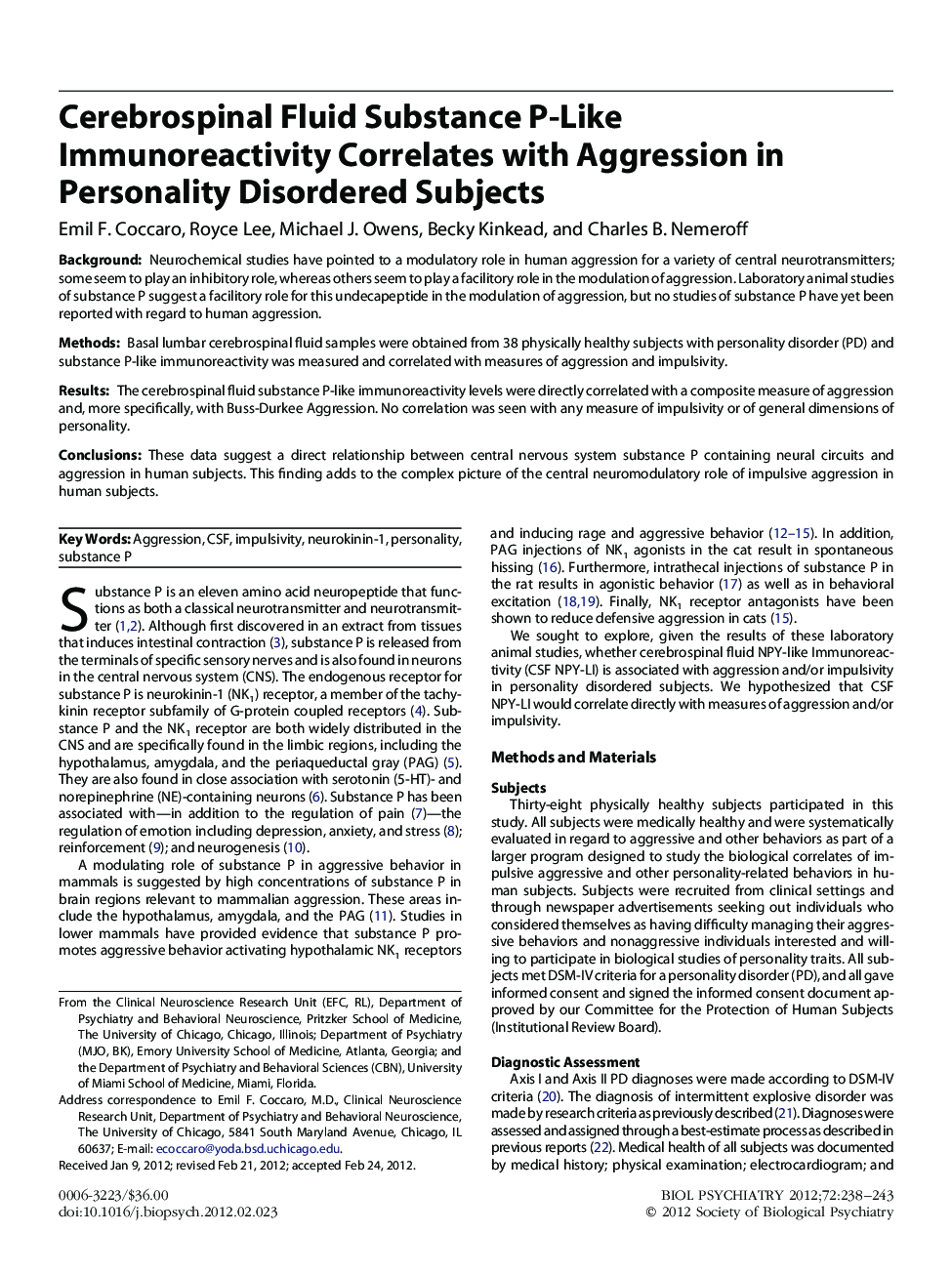| Article ID | Journal | Published Year | Pages | File Type |
|---|---|---|---|---|
| 4178786 | Biological Psychiatry | 2012 | 6 Pages |
BackgroundNeurochemical studies have pointed to a modulatory role in human aggression for a variety of central neurotransmitters; some seem to play an inhibitory role, whereas others seem to play a facilitory role in the modulation of aggression. Laboratory animal studies of substance P suggest a facilitory role for this undecapeptide in the modulation of aggression, but no studies of substance P have yet been reported with regard to human aggression.MethodsBasal lumbar cerebrospinal fluid samples were obtained from 38 physically healthy subjects with personality disorder (PD) and substance P-like immunoreactivity was measured and correlated with measures of aggression and impulsivity.ResultsThe cerebrospinal fluid substance P-like immunoreactivity levels were directly correlated with a composite measure of aggression and, more specifically, with Buss-Durkee Aggression. No correlation was seen with any measure of impulsivity or of general dimensions of personality.ConclusionsThese data suggest a direct relationship between central nervous system substance P containing neural circuits and aggression in human subjects. This finding adds to the complex picture of the central neuromodulatory role of impulsive aggression in human subjects.
